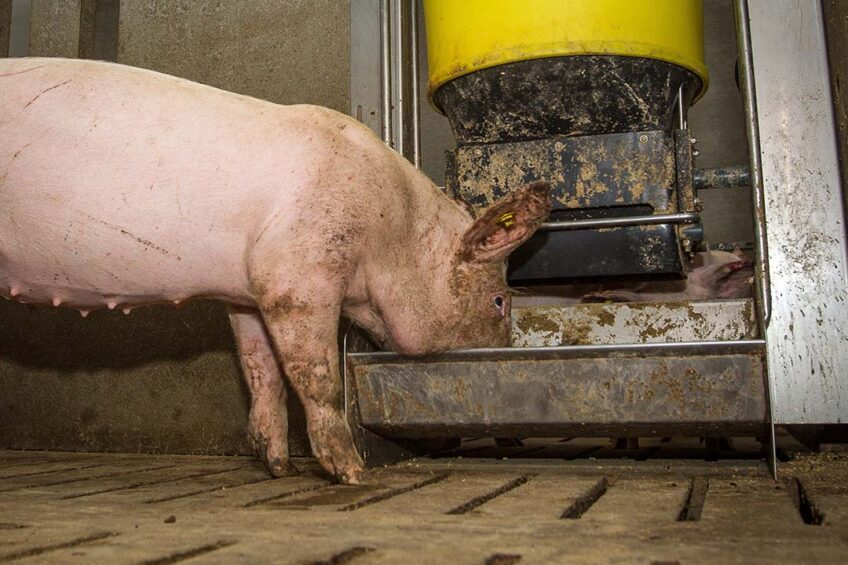How leucine improves growth performance in pigs

Chinese researchers evaluated the effects of dietary supplementation with 1% leucine on growth performance and other factors in pigs. They published about their findings in the journal Meat Science.
Genetics, feeding management and nutrition regulate fat deposition. This in turn affects carcass traits and pork quality. Leucine is one of the functional amino acids involved in promoting fatty acid oxidation and lipolysis. It mediates lipid metabolism and energy homeostasis and improves pork quality. However, excessive dietary supplementation of leucine may reduce feed intake and impair growth performance.
About the study
The team selected a total of 72 Shaziling finishing male pigs and randomly divided them into a control group and a leucine group. They fed the pigs in the control group a basal diet, and those in the leucine group got a basal diet supplemented with 1% leucine for 60 days. They calculated the average daily gain, average daily feed intake, and the ratio of feed to gain. Then they slaughtered 6 pigs and collected blood samples for serum biochemical and immune indices evaluation.
They evaluated carcass traits including the carcass weight, backfat thickness, and loin muscle area. They analysed free amino acids, fatty acid, and lipid composition in muscle and fat tissue samples.
Impact on growth performance and carcass traits
Supplementing leucine increased average daily gain and decreased ratio of feed to gain. In addition, feeding leucine increased the loin muscle area and fat percentage in pigs.
Impact on serum biochemical indices
Supplementation of leucine did not have a negative impact on pigs and pigs in each dietary group were in normal physiological conditions.
Impact on free amino acids in muscle
Dietary leucine supplementation had little effect on the content of free amino acids in the muscle and meat flavour of pigs.
Impact on deposition of fatty acids in muscle and fat
In addition, leucine regulated the re-distribution of fatty acids from adipose tissue to muscle, and increased the contents of saturated fatty acid, monounsaturated fatty acid, and polyunsaturated fatty acid in pigs’ muscle.
Conclusions
The authors concluded that dietary supplementation of 1% leucine improved growth performance and carcass traits but decreased the ratio of feed to gain pigs.











